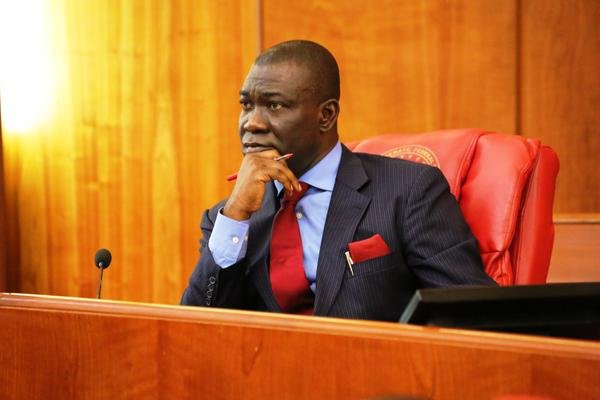
Not-Too-Young-To-Run: Why We Didn’t Reduce Age Qualification for Senate, Governor – Ekweremadu
The Deputy President of the Senate, Senator Ike Ekweremadu, has explained that the 35 years age qualification for the Senate was retained at to correct the initial disparity in the 1999 Constitution between the age qualification for the Senate and that of the President, which used to be 40 years, but now reduced to 35 years.
Ekweremadu, who is also the Chairman of the Senate Committee on Constitution Review, said that the National Assembly reasoned that going by the provisions of Section 146 of the 1999 Constitution as amended, the President of the Senate could hold the office of the President for a period not exceeding three months should the offices of the President and Vice President be vacant at the same time for any reason.
He said: “Section 146 (1) provides that the Vice-President shall hold the office of President if the office of President becomes vacant by reason of death or resignation, impeachment, permanent incapacity or the removal of the President from office for any other reason in accordance with section 143 of the Constitution.
“However, Section 146 (2) further provides that where any vacancy occurs in the circumstances mentioned in Sub-section 1 during a period when the office of Vice-President is also vacant, the President of the Senate shall hold the office of President for a period of not more than three months, during which there shall be an election of a new President, who shall hold office for the unexpired term of office of the last holder of the office’.
“So, since the President of the Senate, a Senator, could become an Acting President by happenstance, it is only right that the qualification for both offices are the same”.
On the non-reduction of the age qualification for the office of the Governor, Ekweremadu explained that the majority opinion was that 35 years should be ideal for now to enable the would-be governors acquire the requisite experience to pilot the affairs of a State.
“However, the Not-Too-Young-To-Run amendment is just one giant step forward. It is not the end of the road, but just the beginning of the road. It is not an end in itself, but a means to an end.
“I believe that anyone, who is 18 years old and qualified to vote should also be qualified to stand for an election. This is our ultimate target and I believe we will get there. So, it is work in progress because constitution amendment is a continuum.
“However, in the meantime, I urge the youth to mobilise into the political parties in their numbers to begin to influence party decisions, push for direct primary elections, internal democracy, level playing ground, and other reforms that will complement the provisions of the current millage achieved by way of the Not-Too-Young-To-Run amendment”, he concluded.






